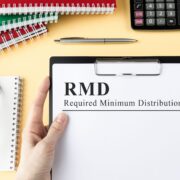If you’re nearing retirement, planning for health care costs is one essential step of the procedure. And given its frequency amongst older Americans, cardiovascular illness is one problem you might need to account for. Cardiovascular disease affects almost 70% of older males and women and jointly costs billions of dollars to treat every year. But you can decrease the monetary concerns related to this illness by planning early.
Health insurance considerations for cardiovascular disease threats
Both males and females struggle with heart problems at near-equal rates as they age, according to the American Heart Association, but middle-aged guys are three times more most likely than women to pass away from cardiovascular disease or coronary heart problems. Hypertension is the main cause of death for those experiencing heart problems, with men aged 45 to 64 two times as most likely to die from it than females.
Aside from age, race plays a big function in the health outcomes of cardiovascular disease. Older Black Americans are 140% most likely to die from heart disease, while middle-aged Black Americans are two times as likely to experience strokes.
Medical insurance is among the chief ways Americans of all ages and ethnic backgrounds can mitigate the high expense of heart illness. For instance, post-stroke care expenses approximately $4,850 each month in the U.S. For most Americans, and specifically those pulling only a retirement income, this kind of expense would be untenable.
However, a minimum of one research study has found that having health insurance significantly decreases the possibility of dying from issues related to cardiovascular disease. Insurance coverage typically spends on preventive care, treatment, and rehabilitation services, which substantially increases survival rates amongst people who suffered a stroke or other heart-related illnesses.
Older Americans nearing retirement who will lose their employer-sponsored medical insurance may be concerned about coverage limitations arising from pre-existing heart conditions or hereditary history. But thanks to the Affordable Care Act, insurance companies can’t presently reject individuals with any pre-existing conditions. Those getting in retirement age must explore all offered medical insurance options, including personal health insurance coverage and Medicare.
Get life insurance before you establish cardiovascular disease
Cardiovascular disease can trigger medical emergencies or result in death at any time or location. As you age, it is essential to consider how to economically safeguard your enjoyed ones if you pass away early, or how to secure yourself ought an abrupt attack trigger an accident that damages others.
Life insurance coverage is an essential aspect of financial preparation, specifically for Americans in danger of heart illness. However, acquiring life insurance may become harder if you have pre-existing heart disease. Many life insurance suppliers will shy away from offering protection if you have a diagnosed heart condition, especially if you’re older and male. That stated, you still have alternatives.
If you’re genetically predisposed to having a heart condition but you haven’t developed one or been diagnosed with one yet, get a new life insurance coverage policy as soon as possible– before your employer-sponsored policy expires. If you do have life insurance coverage through a company, you can likely roll it over into a private policy.
Additionally, if you’re nearing retirement and you have been detected with heart disease, you might require to acquire a streamlined problem life insurance policy. These policies do not need a medical test, however have the (expected) disadvantage of higher premiums and lower max death advantages.

Increase car insurance coverage
If there was ever a time to increase your automobile insurance protection, it’s when you discover you have a danger of cardiovascular disease or following a cardiovascular disease medical diagnosis. A lot of states will not hold you accountable if you cause a mishap due to a sudden medical emergency situation, such as a heart attack or stroke. However, some locations, like Alaska, Hawaii, and New Mexico, do not recognize this defense. And if you were struggling with symptoms prior to an accident with time to pull over, or you had a pre-existing heart disease you were aware of, numerous states that do acknowledge sudden medical emergencies will decline that defense at all.
Consider adding these protections as soon as you learn you’re in danger of heart illness or develop a heart condition:
Collision protection
Accident defense (PIP) coverage
Medical payments (MedPay) protection
Accident coverage pays for the expenses associated with an accident, whether you run into another vehicle or a thing. Should you have a cardiovascular disease while driving and cause an accident, crash coverage will spend on your medical costs and repair work costs, approximately the policy’s stated coverage limit.
PIP provides you and anyone in your automobile additional monetary protection in case injuries take place in an accident. Coverage typically includes medical expenses, however, some policies may likewise cover loss of income and funeral service costs.
Medical payments coverage (MedPay) is created specifically for medical bills and if essential, extreme costs such as funeral costs. This kind of protection might cost as little as $2 monthly. MedPay and PIP will not secure you versus liability– but if you’re concerned about these possible expenses, think about increasing your liability coverage limitations.
Financial wisdom suggests threat mitigation
Heart illness is exceptionally typical, and many Americans will establish a heart condition the longer they live. Statistically speaking, it’s more of a “when” than an “if.” That being the case, secure yourself and your family as you age.
Make certain you do not just have health insurance however consider purchasing life insurance coverage and take an appearance at your car insurance plan.























Comments